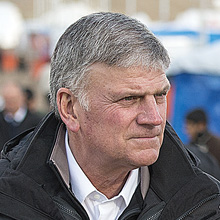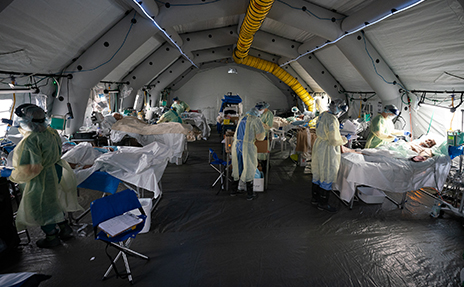
Some church leaders and faith-based relief agencies are concerned that the coronavirus (COVID-19) epidemic may adversely affect humanitarian aid response, as the disease spreads in some of the vulnerable regions worldwide.
Although disruptions have not been felt yet, according to officials, there is a great potential the negative impacts will emerge, as the cases rise even in conflict countries, where the faith-based humanitarian agencies are the only movers of aid.
“The situation is still very fluid and we need to keep adapting continuously. Actions like border closures have the potential to affect our humanitarian work. So far the potential may be yet not visible,” Thorsten Gὂbel, director of programs at ACT Alliance, the coalition of Protestant and Orthodox Churches and church-related organizations engaged in humanitarian work said in an interview.
“We are anticipating that. We are constantly updating different country chapters to be prepared for different situations.”
According to the official the organization was adapting to ensure that responses are sustained.
“We are influencing the political situations at the national and international levels to ensure that funds are not diverted,” said Gὂbel, while adding that the coalition was looking at how the existing responses could be made more resilient to take in COVID-19 programs.
According to a briefing on its website, the alliance is set to propose the Global ACT CoVID-19 appeal, which will suggest making funds available for direct requesting members and also tailored for funding for national members.
“We need to take a very pragmatic approach as an Alliance for this complex response, and forums or members are highly encouraged to explore other available options for responding through their existing portfolio of development and humanitarian programmes,” said the briefing.
With growing concerns of possible outbreaks, the countries and their neighbours have implemented border closures, lockdowns and quarantines, according to officials. The actions have complicated aid delivery for groups such as migrants, refugees and displaced persons.
“I don’t see how it’s going to work with some of these measures. With the lockdowns and border closures, there will be no shipments or even people to transport and administer the aid,” said Rev. Dr Fidon Mwombeki, general secretary of the All Africa Conference of Churches in an interview. “If these measures continue, we are going to see deaths, not from the virus, but from hunger and starvation.”
Mwombeki, a pastor from the Evangelical Lutheran Church in Tanzania, predicated that family economies in Africa, where people do not store food, but buy what they need on a daily bases, are likely to be badly affected.
“It’s going to have an adverse negative impact on families. Children who were expected to be living in school after parents paid school fees are now at home. This is stretching family budgets,” said the leader.
He suggested that governments could take precautionary and prevention approaches.
But in the Democratic Republic of Congo, the Rev. Dr. Josue’ Bulambo Lembelembe of the Church Christ in Congo said the impact of the actions by the government were starting to show.
“This is a big problem. Flights from countries with coronavirus cases are not being allowed. Our borders and those of our neighbours are closed. Humanitarian officials are not able to go far,” said the cleric.
Some reports indicate the humanitarian agencies have stopped the travel of non-essential staff into the countries due government actions related to the virus.
“The virus is causing a lot of panic, in our country (Democratic Rebublic of Congo) which has experienced conflict for many years. Now, villages, hospitals and many health centres have started experiencing difficulties,” said Lembelembe.
Christian Aid, international aid organization on 25 March said easier access for humanitarian aid in conflict regions will become crucial as the virus began impacting on poor nations.
“The virus means their (poor nations) limited resources are stretched beyond the limit,” said Jane Backhurst, Christian Aid senior Advisor on Humanitarian Policy and Advocacy.
*Fredrick Nzwili is an independent journalist based in Nairobi, Kenya.
The World Council of Churches promotes Christian unity in faith, witness and service for a just and peaceful world. An ecumenical fellowship of churches founded in 1948, today the WCC brings together 350 Protestant, Orthodox, Anglican and other churches representing more than 550 million Christians in over 120 countries, and works cooperatively with the Roman Catholic Church. The WCC general secretary is the Rev. Dr Olav Fykse Tveit, from the [Lutheran] Church of Norway.
Media contact: +41 79 507 6363; www.oikoumene.org/press
Our visiting address is:
World Council of Churches
150 route de Ferney
Geneve 2 1211
Switzerland


















